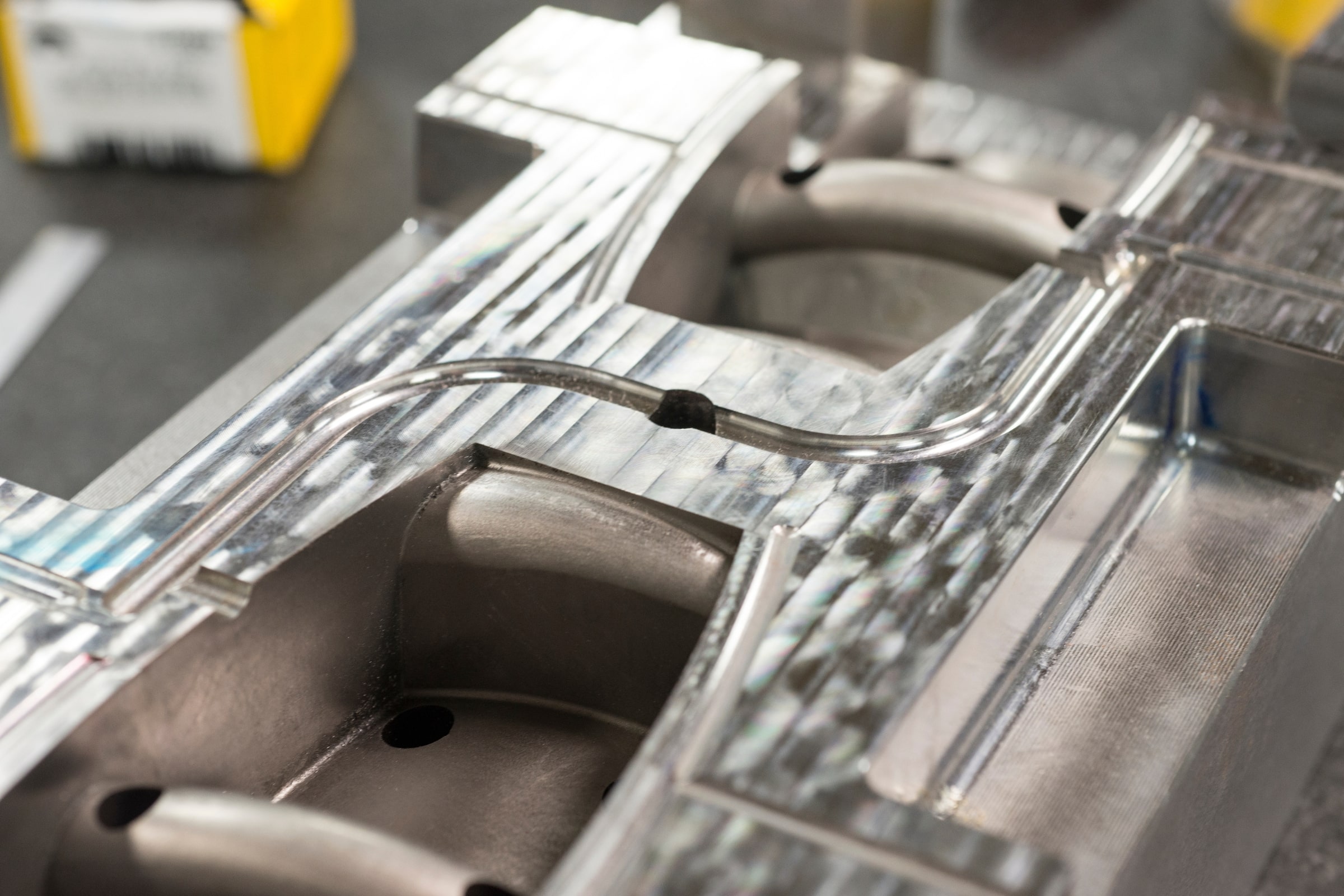Injection molding is an efficient precise process that allows you to make all sorts of products. However, it’s an intricate process with a variety of factors to consider including mold design and mold material. Which brings us to aluminum injection molds.
Among the diverse materials utilized in injection molds, aluminum has emerged as a compelling choice. Often because they offer a cheaper faster option compared to their steel counterparts. But is an aluminum mold your best option?
Your Mold Material Choice Matters
You can use various metals to create an injection mold. Among the most common metals utilized are steel, aluminum, and occasionally, copper alloys. Each metal choice brings its own set of benefits and considerations. Allowing you to pick the best option to meet the specific requirements of your project. Each material also has its own lifespan to consider, though it can vary based on the part being molded and its specifications.
Aluminum Molds
Offer advantages such as lightweight construction, rapid heat dissipation, and cost-effectiveness. They are ideal for prototyping and low to medium volume production. Lifespan of approximately 3,500 – 10,000 cycles.
Copper Alloys
These are the least common mold type. They have excellent thermal properties and corrosion resistance and are best in specialized applications requiring high thermal efficiency. Lifespan of approximately 50,000 – 200,000 cycles.
Steel Molds
Including molds produced from hardened tool steel. These molds have exceptional durability which helps them excel in high-volume production runs. They are also the most versatile. Lifespan of approximately 100,000 – 1,000,000 cycles.
Trying to decide on a material for your next injection mold? We Can Help!
Benefits of Aluminum Injection Molds
Now we have explored the types of metals suitable for injection molds. Let’s take a deeper look at aluminum injection molds. While not the best choice for high-volume production runs, they do offer some benefits.
1. Lower UpFront Costs
The biggest benefit of aluminum molds are their costs compared to molds of other materials. While aluminum is a more expensive material, it is much easier to cut, resulting in lower overall production costs. This leads us to the second benefit of these molds.
2. Rapid Prototyping and Iterations
Aluminum injection molds are well-suited for rapid prototyping processes. They’re ideal for producing small batches of prototypes and low volume runs. Aluminum’s softness makes it easier to machine, allowing for an easy initial build. This agility in prototyping can accelerate product development cycles and bring new products to market faster.
3. Excellent Thermal Properties
Aluminum molds also offer superior thermal conductivity, enabling rapid heat transfer during the injection molding process. This property ensures more consistent and efficient cooling, reducing cycle times and enhancing overall productivity in manufacturing.
4. Production of Larger Molds and Parts
A final benefit is the ability to produce large molds and large parts cost effectively. Since it’s easier to manufacture aluminum, it’s significantly more efficient to cut a large block of aluminum. Since larger parts often have larger tolerances, aluminum molds can wear longer before it impacts part quality.
When to Use an Aluminum Mold
Aluminum injection molds offer practical solutions in various manufacturing scenarios. Aluminum molds are great for quick prototyping and small production runs. They are affordable, fast, and easy to work with. Making them ideal for testing new product designs, refining prototypes, and launching small-scale production initiatives.
In industries like consumer electronics and fashion accessories, aluminum molds help manufacturers quickly adjust to changing market trends and consumer preferences. In short, aluminum injection molds serve as valuable tools in manufacturing environments where agility, flexibility, and cost-efficiency are paramount considerations.
Steel Molds: A Better Alternative?
As we dive deeper into mold materials, it’s clear the choice of mold material plays a pivotal role. Let’s explore the distinct advantages that steel molds bring to the table. Additionally, how they contribute to optimizing production processes and achieving superior part outcomes.
Lifespan and Durability
One key advantage of steel molds is their superior durability and longevity. Especially when subjected to high-pressure molding processes or abrasive materials. This durability allows steel molds to withstand a higher number of molding cycles and produce millions of parts. Ultimately resulting in a longer lifespan and reduced maintenance requirements compared to aluminum molds.
Better for Complex Parts
Additionally, steel injection molds offer greater dimensional stability and precision, particularly for high-tolerance parts and intricate geometries. While aluminum often runs into issues with small parts due to shut off damage and flashing. This makes steel molds ideal for applications where precision and tight tolerances are critical.
Greater Molding Material Choice
Steel molds can handle a wider range of materials and processing conditions compared to aluminum injection molds. This makes steel molds suitable for molding tougher materials, including engineering thermoplastics, high-performance polymers, glass filled, and abrasive materials.
Choose Your Surface Finish
Looking for a specific surface finish for your part? Steel molds offer a broader range of surface finishes compared to aluminum injection molds. Steel allows for intricate machining and polishing techniques that result in a variety of surface textures and finishes. Making steel injection molds the preferred choice for applications demanding a high degree of surface quality and design, especially over a longer period of time.
Time to Make Your Selection
In the intricate world of injection molding, your choice of mold materials matters. Aluminum injection molds have emerged as a cost-effective solution, especially for prototyping and low to medium volume production. However, as we’ve explored, steel molds stand out as a better alternative for various reasons. Their exceptional durability, precision, and flexibility make them a preferred choice for high-volume production runs and applications requiring tight tolerances and complex geometries.
At Basilius, we know how important it is to pick the right material for your injection mold. Whether you’re thinking about using aluminum molds or steel ones, our team is here to help you out. We’ve got lots of experience in injection molding, so we can give you the advice you need to make smart decisions for your projects. Contact us to get a quote for your next mold or injection molding project.


